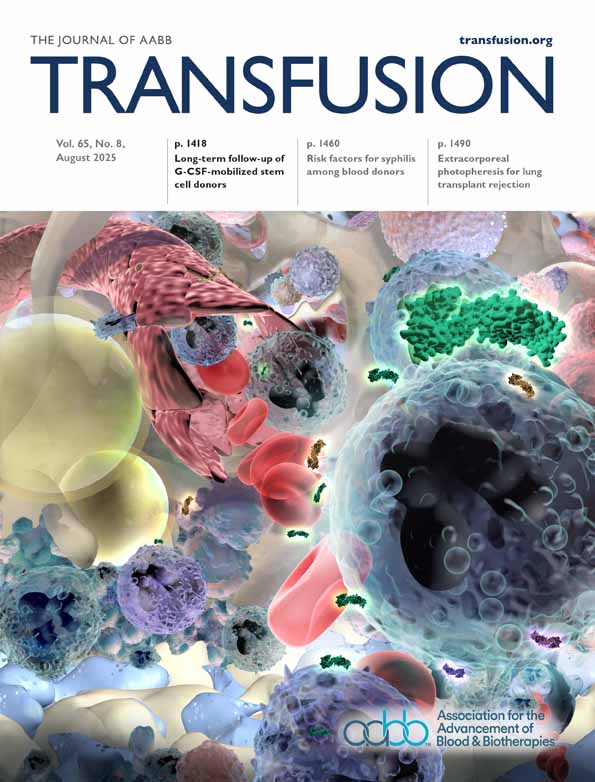Clinical evaluation of a solid-phase test for red cell antibody screening of pregnant women
Abstract
BACKGROUND: The aims of this study were to evaluate the results of a new solid-phase screening test for detecting atypical red cell (RBC) antibodies in a large number of pregnant women and to compare these results to the clinical outcome of the newborn.
STUDY DESIGN AND METHODS: A total of 38,700 infants born in Stockholm were studied retrospectively. Of these infants, 18,500 were born to pregnant women screened with the solid-phase test. Data were collected on all newborns with a positive direct antiglobulin test (DAT) and on infants requiring an exchange transfusion or a blood transfusion. These data were correlated to the screening results for the mothers.
RESULTS: Of 409 DAT-positive newborns, a serologic explanation for the positive DAT was found in 349. Three hundred four cases were due to ABO incompatibility between mother and child; 19 of these infants needed an exchange transfusion. Forty-two cases were due to unexpected maternal RBC antibodies; 11 of these infants were given an exchange transfusion. All 11 were identified before birth. Three other infants had DAT-positive tests due to ABO incompatibility and to unexpected maternal RBC antibodies.
CONCLUSION: ABO incompatibility is a major indication for exchange transfusion in DAT-positive newborns. There was no evidence that the solid-phase screening test had failed to detect any clinically significant RBC antibodies. Finally, the results of this study do not indicate a need for routine screening of D+ women more than once during each pregnancy.




